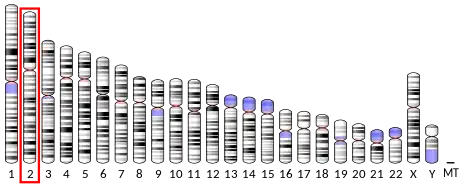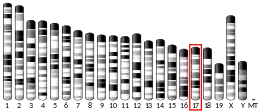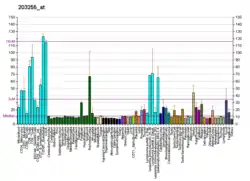| FBXO11 | |||||||||||||||||||||||||||||||||||||||||||||||||||
|---|---|---|---|---|---|---|---|---|---|---|---|---|---|---|---|---|---|---|---|---|---|---|---|---|---|---|---|---|---|---|---|---|---|---|---|---|---|---|---|---|---|---|---|---|---|---|---|---|---|---|---|
| Identifiers | |||||||||||||||||||||||||||||||||||||||||||||||||||
| Aliases | FBXO11, FBX11, PRMT9, UBR6, VIT1, UG063H01, F-box protein 11, IDDFBA | ||||||||||||||||||||||||||||||||||||||||||||||||||
| External IDs | OMIM: 607871 MGI: 2147134 HomoloGene: 11843 GeneCards: FBXO11 | ||||||||||||||||||||||||||||||||||||||||||||||||||
| |||||||||||||||||||||||||||||||||||||||||||||||||||
| |||||||||||||||||||||||||||||||||||||||||||||||||||
| |||||||||||||||||||||||||||||||||||||||||||||||||||
| |||||||||||||||||||||||||||||||||||||||||||||||||||
| |||||||||||||||||||||||||||||||||||||||||||||||||||
| Wikidata | |||||||||||||||||||||||||||||||||||||||||||||||||||
| |||||||||||||||||||||||||||||||||||||||||||||||||||
F-box only protein 11 is a protein that in humans is encoded by the FBXO11 gene.[5][6][7][8]
Function
This gene encodes a member of the F-box protein family which is characterized by an approximately 40 amino acid motif, the F-box. The F-box proteins constitute one of the four subunits of ubiquitin protein ligase complex called SCFs (SKP1-cullin-F-box), which function in phosphorylation-dependent ubiquitination. The F-box proteins are divided into 3 classes: Fbws containing WD-40 domains, Fbls containing leucine-rich repeats, and Fbxs containing either different protein-protein interaction modules or no recognizable motifs. The protein encoded by this gene belongs to the Fbxs class. Alternatively spliced transcript variants encoding distinct isoforms have been identified for this gene.[8]
FBXO11 is conserved from nematodes to mammals, and both human FBXO11 and its worm ortholog (DRE-1) form functional SCF ubiquitin ligase complexes. By binding to and mediating the degradation of its substrate proteins, FBXO11 plays important roles in regulating cell cycle regulation, tumorigenesis, and tumor cell metastasis. Well established targets of FBXO11 include BCL6,[9] CDT2,[10][11] and Snail.[12]
Clinical significance
Inactivation of FBXO11-mediated BCL6 degradation has been shown to contribute to abnormal germinal-center formation and tumorigenesis.[13] The Caenorhabditis elegans DRE-1/FBXO11 was reported to target the conserved transcription factor BLMP-1 for proteasomal degradation, and thereby regulates developmental timing and maturation.[14] The gene encoding FBXO11 was found to be deleted or mutated in multiple diffuse large B cell lymphoma (DLBCL) cell lines, and this inactivation of FBXO11 contributes to increased levels BCL6 and subsequently DLBCL pathogenesis.[9] FBXO11 mutations were also identified in other human cancers, such as colon, lung, ovary, and head and neck tumors. In mice, a homozygous mutation of FBXO11 results in cleft palate defects, facial clefting, and perinatal lethality. Moreover, haploinsufficient mutant alleles cause otitis media, a disorder that affects approximately 15% of children.[15]
References
- 1 2 3 GRCh38: Ensembl release 89: ENSG00000138081 - Ensembl, May 2017
- 1 2 3 GRCm38: Ensembl release 89: ENSMUSG00000005371 - Ensembl, May 2017
- ↑ "Human PubMed Reference:". National Center for Biotechnology Information, U.S. National Library of Medicine.
- ↑ "Mouse PubMed Reference:". National Center for Biotechnology Information, U.S. National Library of Medicine.
- ↑ Cenciarelli C, Chiaur DS, Guardavaccaro D, Parks W, Vidal M, Pagano M (October 1999). "Identification of a family of human F-box proteins". Current Biology. 9 (20): 1177–9. doi:10.1016/S0960-9822(00)80020-2. PMID 10531035. S2CID 7467493.
- ↑ Cook JR, Lee JH, Yang ZH, Krause CD, Herth N, Hoffmann R, Pestka S (April 2006). "FBXO11/PRMT9, a new protein arginine methyltransferase, symmetrically dimethylates arginine residues". Biochemical and Biophysical Research Communications. 342 (2): 472–81. doi:10.1016/j.bbrc.2006.01.167. PMID 16487488.
- ↑ Lee MJ, Pal K, Tasaki T, Roy S, Jiang Y, An JY, Banerjee R, Kwon YT (January 2008). "Synthetic heterovalent inhibitors targeting recognition E3 components of the N-end rule pathway". Proceedings of the National Academy of Sciences of the United States of America. 105 (1): 100–5. Bibcode:2008PNAS..105..100L. doi:10.1073/pnas.0708465105. PMC 2224166. PMID 18162545.
- 1 2 "Entrez Gene: FBXO11 F-box protein 11".
- 1 2 Duan S, Cermak L, Pagan JK, Rossi M, Martinengo C, di Celle PF, Chapuy B, Shipp M, Chiarle R, Pagano M (January 2012). "FBXO11 targets BCL6 for degradation and is inactivated in diffuse large B-cell lymphomas". Nature. 481 (7379): 90–3. Bibcode:2012Natur.481...90D. doi:10.1038/nature10688. PMC 3344385. PMID 22113614.
- ↑ Abbas T, Mueller AC, Shibata E, Keaton M, Rossi M, Dutta A (March 2013). "CRL1-FBXO11 promotes Cdt2 ubiquitylation and degradation and regulates Pr-Set7/Set8-mediated cellular migration". Molecular Cell. 49 (6): 1147–58. doi:10.1016/j.molcel.2013.02.003. PMC 3615078. PMID 23478445.
- ↑ Rossi M, Duan S, Jeong YT, Horn M, Saraf A, Florens L, Washburn MP, Antebi A, Pagano M (March 2013). "Regulation of the CRL4(Cdt2) ubiquitin ligase and cell-cycle exit by the SCF(Fbxo11) ubiquitin ligase". Molecular Cell. 49 (6): 1159–66. doi:10.1016/j.molcel.2013.02.004. PMC 3624904. PMID 23478441.
- ↑ Zheng H, Shen M, Zha YL, Li W, Wei Y, Blanco MA, Ren G, Zhou T, Storz P, Wang HY, Kang Y (September 2014). "PKD1 phosphorylation-dependent degradation of SNAIL by SCF-FBXO11 regulates epithelial-mesenchymal transition and metastasis". Cancer Cell. 26 (3): 358–373. doi:10.1016/j.ccr.2014.07.022. PMC 4159622. PMID 25203322.
- ↑ Schneider C, Kon N, Amadori L, Shen Q, Schwartz FH, Tischler B, Bossennec M, Dominguez-Sola D, Bhagat G, Gu W, Basso K, Dalla-Favera R (August 2016). "FBXO11 inactivation leads to abnormal germinal-center formation and lymphoproliferative disease". Blood. 128 (5): 660–6. doi:10.1182/blood-2015-11-684357. PMC 9709922. PMID 27166359.
- ↑ Dev Cell. 2014 Mar 31;28(6):697-710. doi: 10.1016/j.devcel.2014.01.028. DRE-1/FBXO11-dependent degradation of BLMP-1/BLIMP-1 governs C. elegans developmental timing and maturation. Horn M, Geisen C, Cermak L, Becker B, Nakamura S, Klein C, Pagano M, Antebi A.
- ↑ Hardisty-Hughes RE, Tateossian H, Morse SA, Romero MR, Middleton A, Tymowska-Lalanne Z, Hunter AJ, Cheeseman M, Brown SD (November 2006). "A mutation in the F-box gene, Fbxo11, causes otitis media in the Jeff mouse". Human Molecular Genetics. 15 (22): 3273–9. doi:10.1093/hmg/ddl403. PMID 17035249.
Further reading
- Maruyama K, Sugano S (January 1994). "Oligo-capping: a simple method to replace the cap structure of eukaryotic mRNAs with oligoribonucleotides". Gene. 138 (1–2): 171–4. doi:10.1016/0378-1119(94)90802-8. PMID 8125298.
- Suzuki Y, Yoshitomo-Nakagawa K, Maruyama K, Suyama A, Sugano S (October 1997). "Construction and characterization of a full length-enriched and a 5'-end-enriched cDNA library". Gene. 200 (1–2): 149–56. doi:10.1016/S0378-1119(97)00411-3. PMID 9373149.
- Winston JT, Koepp DM, Zhu C, Elledge SJ, Harper JW (October 1999). "A family of mammalian F-box proteins". Current Biology. 9 (20): 1180–2. doi:10.1016/S0960-9822(00)80021-4. PMID 10531037. S2CID 14341845.
- Le Poole IC, Sarangarajan R, Zhao Y, Stennett LS, Brown TL, Sheth P, Miki T, Boissy RE (December 2001). "'VIT1', a novel gene associated with vitiligo". Pigment Cell Research. 14 (6): 475–84. doi:10.1034/j.1600-0749.2001.140608.x. PMC 1747534. PMID 11775060.
- Segade F, Daly KA, Allred D, Hicks PJ, Cox M, Brown M, Hardisty-Hughes RE, Brown SD, Rich SS, Bowden DW (July 2006). "Association of the FBXO11 gene with chronic otitis media with effusion and recurrent otitis media: the Minnesota COME/ROM Family Study". Archives of Otolaryngology–Head & Neck Surgery. 132 (7): 729–33. doi:10.1001/archotol.132.7.729. PMC 1904347. PMID 16847180.
- Abida WM, Nikolaev A, Zhao W, Zhang W, Gu W (January 2007). "FBXO11 promotes the Neddylation of p53 and inhibits its transcriptional activity". The Journal of Biological Chemistry. 282 (3): 1797–804. doi:10.1074/jbc.M609001200. PMC 3690493. PMID 17098746.





